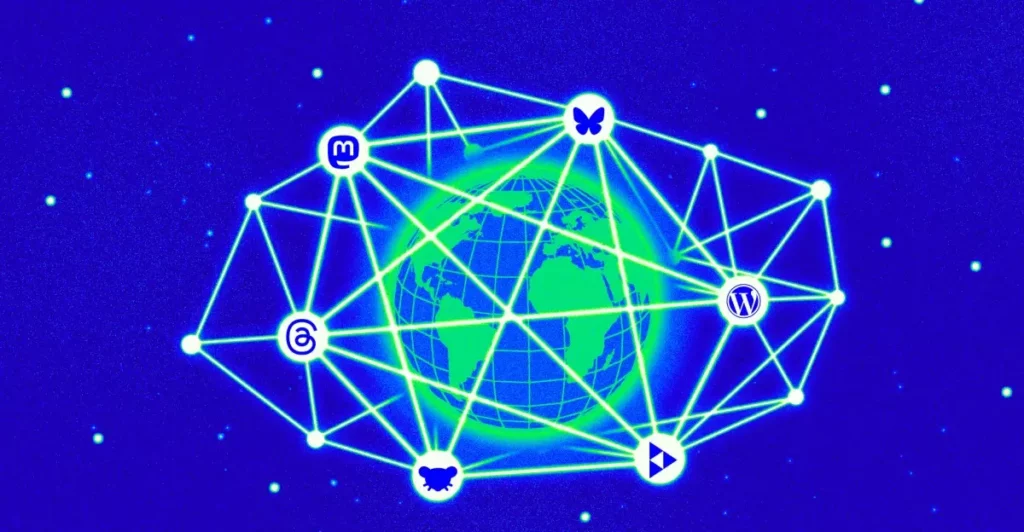In an epoch dominated by centralized social networks that dictate the terms of engagement, a significant shift is underway. The recent FediForum conference has opened our eyes to a series of innovative platforms—Bonfire Social, Channel.org, and Bounce—that are championing the decentralization of how we communicate and share online. The discussion focuses on something profoundly essential: the reclamation of data ownership and community control. As users increasingly seek not just connection, but empowerment in their online experiences, these platforms exemplify a budding movement towards a more egalitarian digital ecosystem.
Bonfire Social: Crafting Digital Communities
Among these transformative platforms, Bonfire Social shines brightly, heralding a new chapter in the creation of customized digital communities. The recent launch of Bonfire Social 1.0 marks a significant leap forward, providing users with a toolkit to mold their own online environments. What sets Bonfire apart from conventional social media formats is not merely its functionality but the contrasting ethos that it embodies. Rather than fitting users into predefined molds, Bonfire champions user agency, allowing individuals to not only define the aesthetic and functional elements of their communities but also govern them according to their values and needs. This flexibility encourages engagement that honors the diversity of user preferences, and nurtures connections that matter.
For instance, Bonfire’s distinct “flavor” plans cater to a range of communities—from tight-knit private organizations to collaborative academic forums—making each space uniquely tailored to its audience. Users are not simply participants; they are architects of their digital realities.
Channel.org: Mastering Content Curation
Following closely is Channel.org, which offers a compelling solution to the overwhelming deluge of information that characterizes contemporary social media. While traditional platforms often inundate users with content, Channel.org emphasizes curation and clarity. The platform allows users to meticulously track content through specified hashtags, effectively transforming their engagement into a tailored experience. As we navigate a landscape riddled with noise and distractions, the ability to filter and focus on what truly resonates becomes invaluable.
Moreover, Channel.org’s innovative features bolster its role as a crucial player among decentralized networks. By bridging connections across various platforms—including Bluesky and RSS feeds—users can maintain a concentrated flow of information that is both relevant and enriching. This proactive approach to user experience, especially its built-in filters to address issues like hate speech, underscores the growing demand for more refined, user-centric social media environments. Currently in an invitation-only beta phase, Channel.org is positioning itself as a leader in the push for personalized content engagement.
Bounce: The Fluidity of Social Identity
Equally noteworthy is Bounce, an innovative platform that allows users to transfer their social identities seamlessly across different networks without the fear of losing their followers. This technology represents a notable leap toward social media fluidity—an essential feature in an age where users may seek to engage with various communities without being tied to an individual network. Bounce’s integration with established tools like Bridgy Fed not only enhances its credibility but also reflects a commitment to retaining user connections, regardless of the platform.
In a landscape often characterized by monopolistic tendencies, Bounce emerges as a beacon of hope, offering users the flexibility to navigate diverse social environments. This capability symbolizes a shift towards empowering individual users, freeing them from the clutches of single-platform dependency. It illustrates a future where users enjoy real choices and true autonomy over their social lives.
A Rallying Cry for User Autonomy
The advancements highlighted at FediForum serve as a powerful argument for the necessity of a decentralized social web. Platforms like Bonfire Social, Channel.org, and Bounce are designed not merely to provide a service but to engender a culture of collective empowerment and diversity. In an era where traditional social media giants continue to exert control, these innovative tools offer a refreshing counter-narrative, advocating for user autonomy in a world that desperately needs it.
The ongoing metamorphosis in social networking signals a pivotal moment for how we engage with one another online. The evolution toward a landscape that supports meaningful connections and nurtures diverse perspectives is not just desirable but necessary for a vibrant digital society. The progressive steps taken by these platforms might very well complement a broader dialogue about the future of social interactions, emphasizing our innate desire for authenticity and community without compromise. The digital age is in flux, and as innovators pave the way for decentralization, they reaffirm the essence of social networking—creating spaces that resonate with the true voices of their users.









Leave a Reply